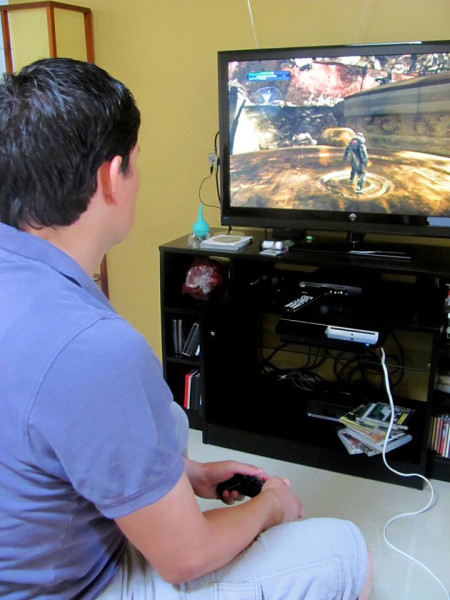Imagine a world where you can change everything to the way you want it, pick the way you look by pressing a button or transform yourself from tall to short, tan to pale. A world like this may only exist in your imagination, or better yet, in video games.
Video games can impact a child, in some cases driving them to do the unthinkable.
“The Slender Man” case from Waukesha, Wisconsin, may be an example on how a simple fictional character can become a dangerous role model for the young adult mind.
According to the attackers, 12-year-old young girls were charged with attempted murder because they were only trying to please The Slender Man. They were hoping to see him and become his servants. One of them said she believed Slender Man was watching her and could read her mind. Reactions all over the state have been diverse.
Three girls went out for a walk then the two alleged attempted murderers pulled her aside and began to stab her around 19 times. Luckily, the victim was spotted by a passing bicyclist who heard her dying pleas.
“It’s scary what those girls did,” said Grecia Medina junior microbiology major. “They were only 12-year-olds, but they were so much into The Slender Man and the game that they nearly killed someone. I can’t fathom the reasoning behind it.”
Something Awful forums user Eric Knudsen, who goes by the alias “Victor Surge,” created “The Slender Man” in 2009. The character was created as a tall man with thin limbs faceless who wears a black suit and is said to abduct and traumatize people—children for the most part. He was created as a part of the written fiction and folklore.
Gabriela Mendoza, a social worker who is a parent of one and also a grandmother, said she is concerned with childrens’ usage of video games.
“Parents tend to get more involved in providing material things for the kids instead of finding out who they hang out with, what they do and what their needs are,” Muñoz said. “Parents need to remember that with love comes discipline and love doesn’t mean getting them everything they want instead of getting them what they need.”
Recent studies show that playing a video game for long periods of time can cause hostility, due to the fact the player is so involved in the game. While playing, the frustration towards the video game can suddenly embed itself, and be released in a real life situation.
Akio Mori, from Tokyo’s Nihon University, conducted an experiment where he divided up 260 people into three groups and set time limits on each group.
In his results, he found higher aggression levels in those who played video games for more than one day a week.
Julie Rodriguez, family specialist at the 21st Century Texas ACE program at North Star Elementary School, agreed with Mendoza on the lack of parent involvement.
“If there is any parental involvement, then there is a lack of structure or rules when it comes to video gaming,” Rodriguez said. “Most of the time, parents don’t even follow the ratings when they purchase these games for their children.”
Medina said young people use video games as an escape. “If there is a reason they want to get away, that’s when it gets dangerous,” Medina said. “I mean playing the video games for a while is okay, but trying to be a part of them or be like them is when it starts to get bad.”
The main problem is the lack of communication between children and parents, that ultimately leads the children to talk to anyone online about their personal problems, Mendoza said.
“It’s a cry for help. Kids nowadays look for attention or for someone to notice his or her depression or his or her loneliness. After a certain point they get so into the game, they believe it’s reality and they began doing things they do in the game but in real life,” Mendoza said.
“The Slender Man” may be fictional, but the influences and sudden attacks are as real as can be. The iconic figure has made its way into the homes of families.
Parents who have children who constantly play video games can look out for signs such as sudden outbursts, breaking toys—becoming distant in their interactions with others.
“Video games can be useful and fun sometimes, but when you start to let them over rule your life, and especially your children’s life, that’s when others should notice the red flag hanging over,” Mendoza said.
Ashley Muñoz may be reached at [email protected].






